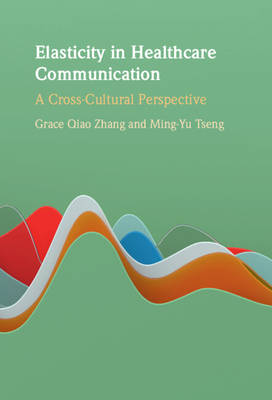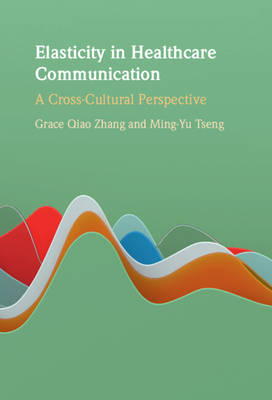
- Afhalen na 1 uur in een winkel met voorraad
- Gratis thuislevering in België vanaf € 30
- Ruim aanbod met 7 miljoen producten
- Afhalen na 1 uur in een winkel met voorraad
- Gratis thuislevering in België vanaf € 30
- Ruim aanbod met 7 miljoen producten
Zoeken
Elasticity in Healthcare Communication
A Cross-Cultural Perspective
Grace Qiao Zhang, Ming-Yu Tseng
Hardcover | Engels
€ 168,95
+ 337 punten
Omschrijving
Elastic language is a phenomenon in linguistics that refers to how we stretch the meanings of words, depending on the context in which they are used - for example many, about 20, perhaps, could be. This study looks specifically at elastic language in the fields of medicine and healthcare, showing how it is used to serve both the patient's and the professional's needs. It explores the pragmatics and metapragmatics of elasticity in the delivery of online medical information as a way of avoiding miscommunication. Based on data from Chinese and English sources, it takes a cross-cultural perspective, to present an account of harmony and disharmony between professional medical websites and their users. Adding exciting new dimensions to the fields of health communication and pragmatics, it is essential reading for scholars and advanced students in semantics, pragmatics, discourse analysis and interactional linguistics, as well as professionals involved in healthcare and communication.
Specificaties
Betrokkenen
- Auteur(s):
- Uitgeverij:
Inhoud
- Aantal bladzijden:
- 280
- Taal:
- Engels
Eigenschappen
- Productcode (EAN):
- 9781108842396
- Verschijningsdatum:
- 18/08/2022
- Uitvoering:
- Hardcover
- Formaat:
- Genaaid
- Afmetingen:
- 152 mm x 229 mm
- Gewicht:
- 535 g

Alleen bij Standaard Boekhandel
+ 337 punten op je klantenkaart van Standaard Boekhandel
Beoordelingen
We publiceren alleen reviews die voldoen aan de voorwaarden voor reviews. Bekijk onze voorwaarden voor reviews.











